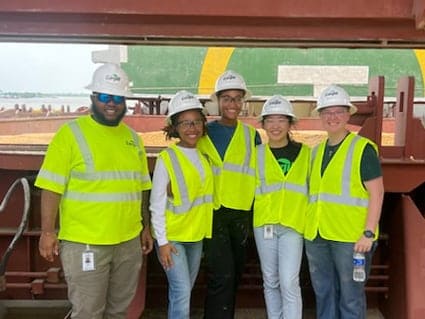No degree? No problem. Just ask these 3 Cargill colleagues.
Read Time: 5 minutes
April 25, 2024
Not every career path is the same.
For some, the journey includes a university classroom. For others, college isn’t a viable option.
That’s why we just piloted our first apprenticeship program in our corporate offices in the U.S. It creates a pathway for talented individuals who have not earned a college degree to learn on the job, build skills and jumpstart their careers.
The apprenticeship program is based on the belief that skills — rather than academic qualifications — are the most important determinant of job success.
Earlier this month, 10 Cargill employees graduated from the inaugural program. Over the course of a year, they built job-specific expertise and corporate savvy: from how to dress for the office to how to address their peers.
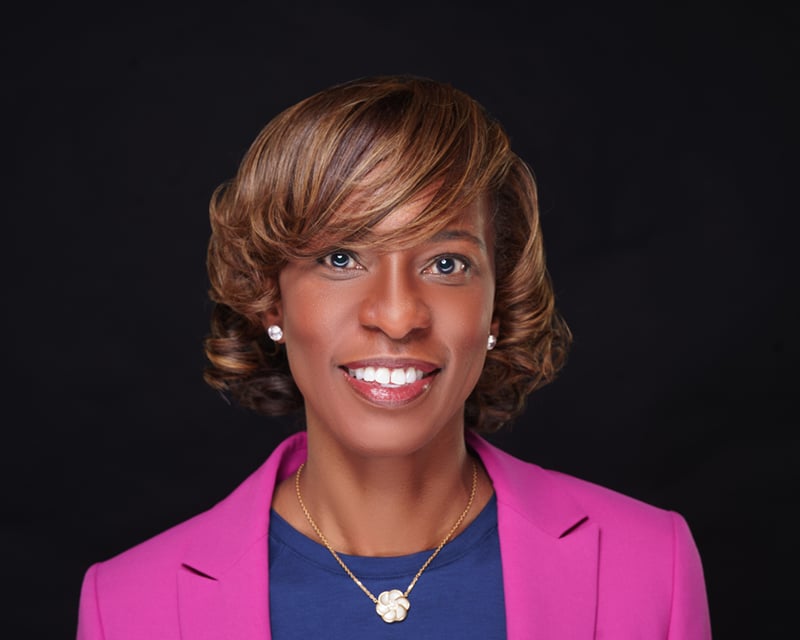 Apprenticeship programs serve as pathways, broadening our access to diverse talent pools and creating equitable opportunities for individuals to thrive. By providing hands-on training and mentorship, these programs empower participants to unlock their full potential and make meaningful impact."
Apprenticeship programs serve as pathways, broadening our access to diverse talent pools and creating equitable opportunities for individuals to thrive. By providing hands-on training and mentorship, these programs empower participants to unlock their full potential and make meaningful impact."
The apprenticeship also addresses barriers to education and opportunities for underserved communities. This non-traditional career pathway includes funding for an external skills-based certificate program, internal development and paid experience.
Below, meet three apprentices who reaped the benefits of this program and are now part of our Cargill family.
Edo Yawovi: ‘All my dreams fell into place’
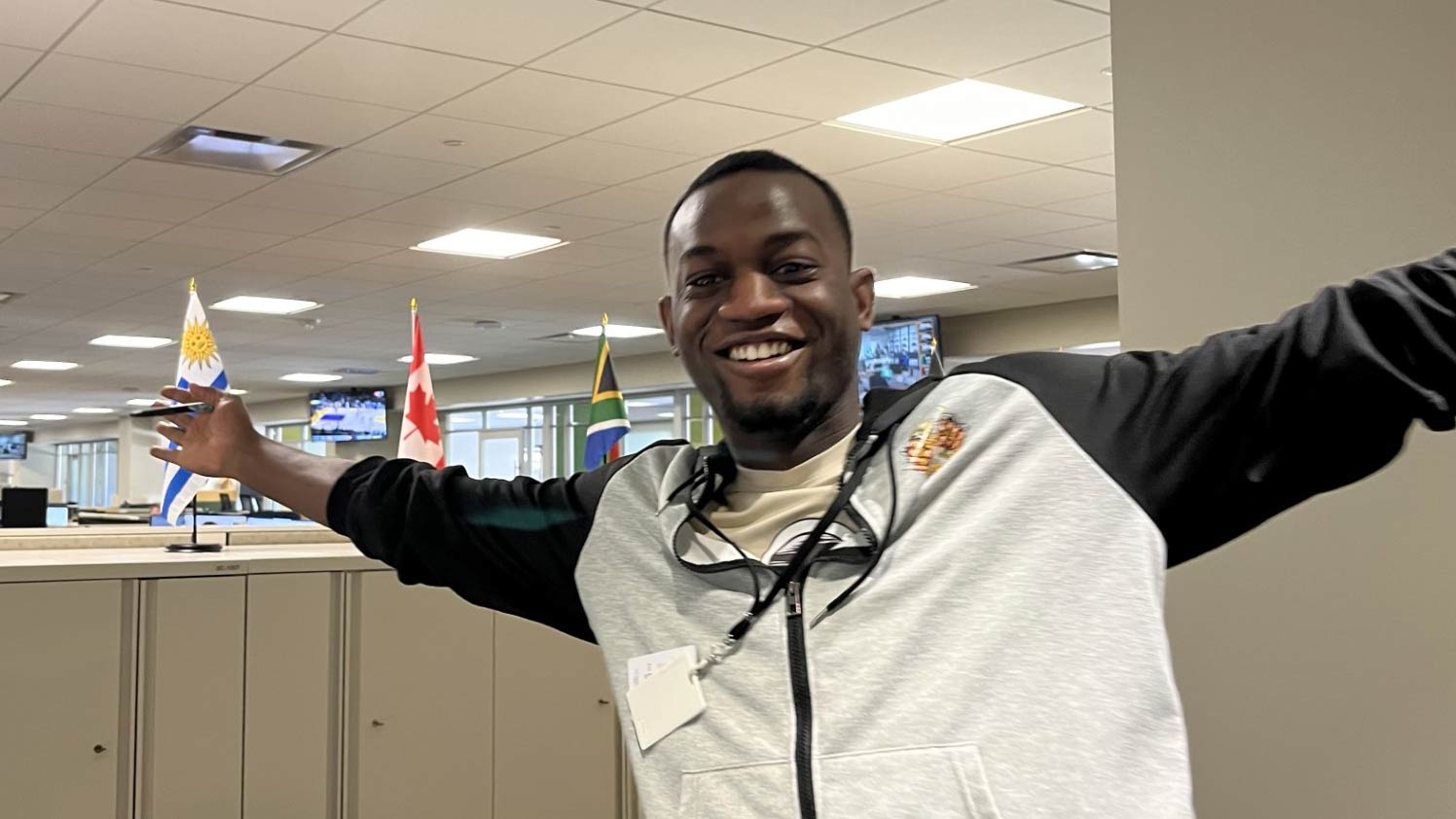 Edo moved from Togo to the United States in 2021. Now, he’s an associate data scientist for Cargill.
Edo moved from Togo to the United States in 2021. Now, he’s an associate data scientist for Cargill.
Location: |
Minneapolis, Minnesota |
Role: |
Data science in Cargill's research and development team |
Q: What were you doing a year ago?
A: I was born in Togo, a small country in West Africa, where I was studying software engineering and applied science at a university. Three years ago, I won a lottery to move to the United States and study. However, because Togo is a French-speaking country, I couldn’t transfer my credits and had to start my major all over again at the North Hennepin Community College in Minnesota. That’s what I was doing a year ago, while working in a manufacturing company.
Q: What was your apprenticeship experience like?
I learned a lot about data science. Because of my university studies, both in Togo and here, I was able to speed things up and start applying my knowledge in small projects with my teammates.
I’ve always been passionate about technology, but I had never realized how impactful it can be. A single line of code that I write can have a lasting impact, especially for a company as big as Cargill. This was my first job in the tech industry, and it was an eye-opener. Not in a thousand years could I have imagined all the ways my colleagues apply technology. It’s a joy to be a part of.
Q: What’s the best thing to come out of the program for you?
A: Just one word: hope. And not just for me.
When I first moved to this country, I was expected to work because I had to provide for my family back home. But I couldn’t give up on my dream to work in tech and do amazing things with the skills I had. Working and studying at the same time is not easy at all. When I found this program, it was like all my dreams fell into place.
Marisa Martínez: ‘I love interacting with customers’
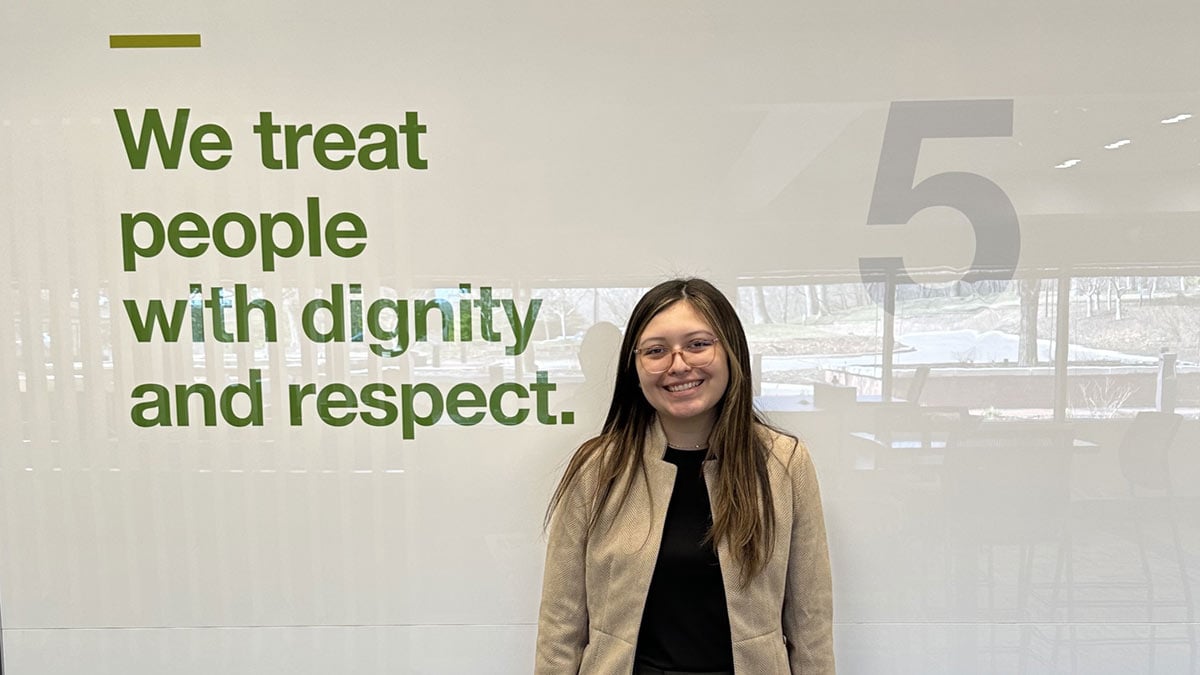 Marisa graduated from Cargill’s apprenticeship program as a sales specialist for our animal nutrition business.
Marisa graduated from Cargill’s apprenticeship program as a sales specialist for our animal nutrition business.
Location: |
Olathe, Kansas |
Role: |
Sales in Cargill’s animal nutrition business |
Q: What were you doing a year ago?
A: I was working as an inbound specialist at a warehouse for supplements. I had been there for two years and I loved it, but the opportunities for advancement were very limited. I was conflicted about leaving.
One day, I was casually on social media and saw an advertisement for a company that connects applicants with paid apprenticeships at different companies. After I signed up, they reached out and mentioned they were partnering with Cargill and there was a great opportunity in my area.
And here I am.
Q: What was your apprenticeship experience like?
A: My apprenticeship was in sales and customer service for Cargill Animal Nutrition. I was tasked with selling animal feed for all species: horses, pigs, cows, chicken. I grew up in a metro area, so I was very unfamiliar with farms and animals. I had also never worked in a customer-facing role, so I was a little nervous.
Initially, I shadowed some of our more seasoned representatives and learned from their interactions with customers. From my own experiences, I created an onboarding document to help people with no experience in this field — like me — acclimate to the job.
Q: What did you learn about yourself during your apprenticeship?
A: That I’m passionate about working with people. I love interacting with customers, and I think they also appreciate when you cultivate a relationship with them.
I’ve also learned that it’s okay to not know all the answers right away. I used to get worked up when a customer would ask me something I wasn’t sure of. Now, I’m honest with them and tell them, ‘Hey, I don’t know that right now, but I’ll find out and get back to you.’
Nariah Range: ‘I needed a chance’
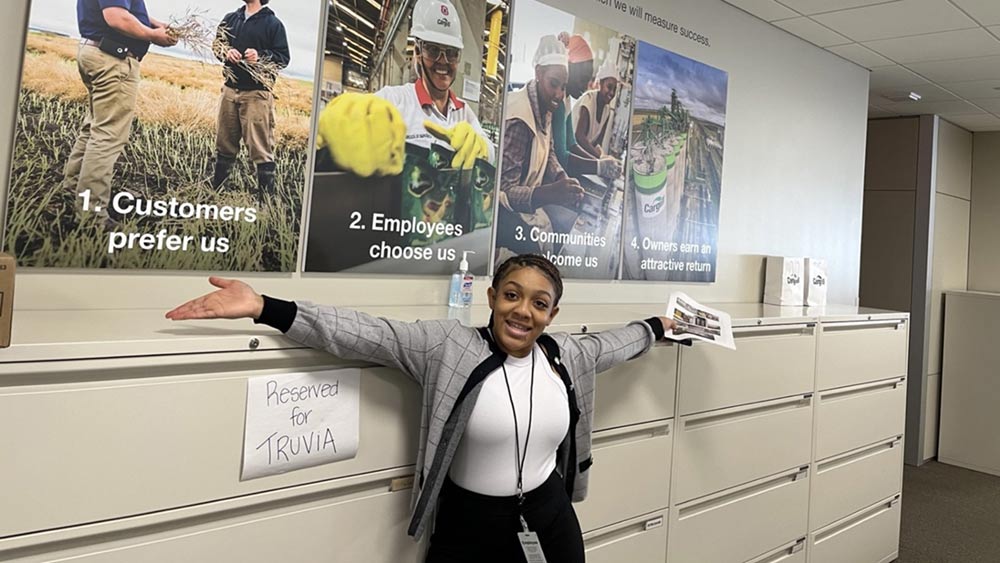 Before starting her apprenticeship at Cargill, Nariah was working at a fast-food chain restaurant with limited options to advance her career, she says.
Before starting her apprenticeship at Cargill, Nariah was working at a fast-food chain restaurant with limited options to advance her career, she says.
Location: |
Cedar Rapids, Iowa |
Role: |
Customer service in Cargill’s business operations and supply chain |
Q: What were you doing a year ago?
A: I was working at a Dunkin’ Donuts in Iowa and didn’t know anything about Cargill! I was trying to go back to school, but I couldn’t afford to do it full-time. The apprenticeship program was the ideal opportunity to gain professional experience, develop and advance my career, and still get paid.
At first, I was pretty nervous. I had never worked from home before, and I’d never had a corporate-level job. But the opportunity was too valuable and I knew I had to take it.
Q: What was your apprenticeship experience like?
A: I learned a lot about Cargill, and more specifically about the work we do in Cargill Food & Bioindustrial. My apprenticeship position was in order entry for starches. I learned from my colleagues and mentors, about how they enter their orders, how they handle the day-to-day process. I practiced a lot and eventually started entering real orders.
But honestly, I learned even more about corporate life. My previous working experience had been in fast food, fulfillment or factory work. I’d never had to worry about how to communicate and showcase myself in a professional setting.
That’s something that I really value about this opportunity at Cargill: How I was able to work on my personal brand, my image, while still being myself. And how comfortable and supported my teammates made me feel.
Q: Why do you think a program like this is important for a corporation like Cargill?
A: Because it shows that people with a lower income or limited school or work opportunities aren’t less worthy of being given a chance. For me, I really wanted to go to college, but I couldn’t afford it. That didn’t mean I didn’t have skills or the desire to move up, it just meant I needed a chance. This program gave me, and a lot of people like me, the chance we needed.
More stories

They told Ernest college wasn’t for him. He proved them wrong. Here’s how Cargill supported his journey.
Cargill’s University thrive program provides scholarships, development opportunities for underrepresented college students.
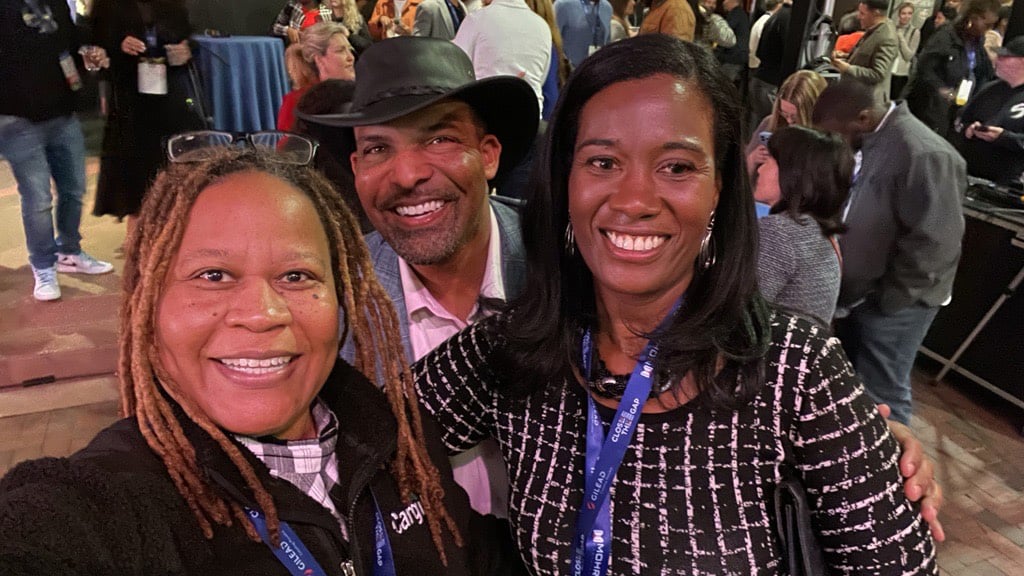
Advancing Black equity: 3 colleagues turn understanding into action
From supplier diversity efforts to anti-racism programs, these Cargill colleagues are working to advance equity in Black communities.
‘This is how we eat’: An intern’s journey into food production
Two-time intern Darrin Adams shares his experience as an operations management intern at Cargill.

